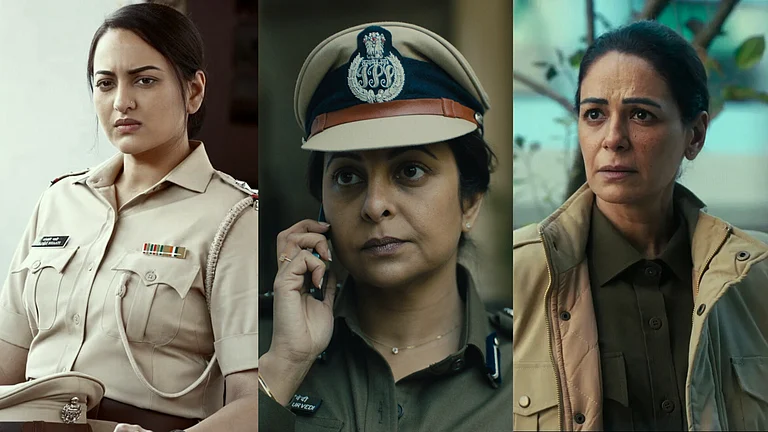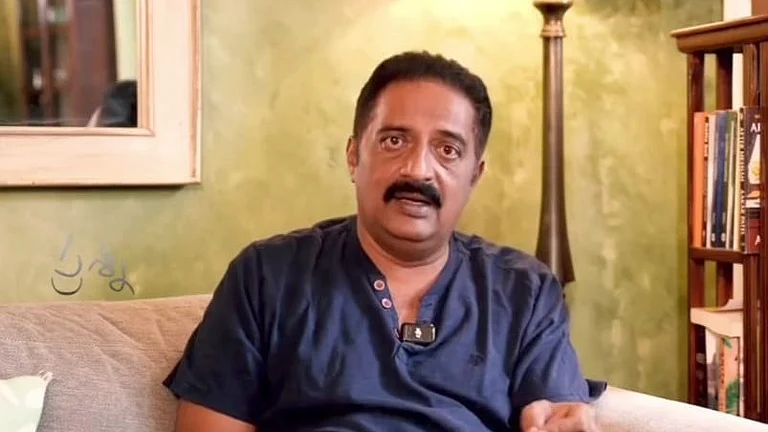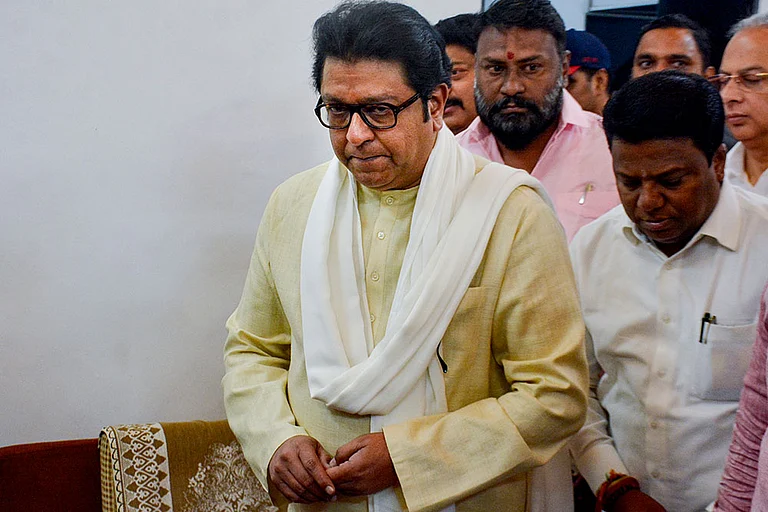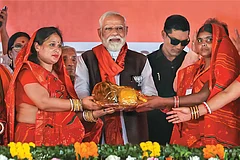
When the rule of law weakens, society slips back into Jungle Raj where might becomes right.
Justice must prevail through lawful policing and efficient judicial processes, not state violence.
Crime is largely driven by economic gain and should be countered by targeting its financial incentives within the legal framework.
When the Rule of Law ceases to exist, Jungle Raj takes over. The most primitive law that exists is natural. Justice and equity are not found in natural law. The maxim of natural law is “might is right”. The principle of the food chain runs through all living species. Exactly then was the advent of Homo Sapiens on earth.
Humans collectivised and slowly, the esoteric concept of justice grew. This was definitely a quantum leap from the primitive lawless jungle existence. The concept of dominance over resources to equitable distribution of natural resources became an order of the evolutionary process.
As equity and justice evolved, replacing natural laws, the concept of state power grew as well. The state power evolved in various shapes and forms and human society took pride in it. Various regions of the earth ran the whole course of history of the evolution of state power, ranging from kingship to electoral democracy. Society sought equity and justice the most from the state it had given unto itself. The form of the state survived only as long as society was satisfied with the manner in which justice was delivered. Long stretches of dissatisfaction would create societal upheavals, leading to changes in the shape and form of state power.
The mid-20th century saw the evolution of the Parliamentary form of electoral democracy. Equity was given massive importance through the concept of equality of votes.
Justice was not given the same weight as equity. In India, the creation of high courts and the Supreme Court was thought to be enough. Initially, equity and justice ran hand in hand as inseparable. With the passage of time, a phased lag grew between the two. Equity became too precious for every segment of society. The justice system couldn’t match the aspirations of equity.
Our Constitution never talked of party democracy. It crept in after the first General Elections. With time, political parties and their intra/inter fights became the most important feature of our democracy. In this process, justice and its various ramifications lost sight.
Jungle Raj returned with time.
Every segment of Indian society started believing in the strength of the ultimate equity that was epitomised through the equality of vote power. Franchise generated a feeling of power. Unfortunately, the sense of justice never caught up. The phased lag between the two showed up in various forms of aberrations. The deprived sections, who could feel the power of equity, somehow could not sense the protection of justice through the State. Both the State and justice were too abstract for them to understand and play around with.
The easiest way around this knotty issue was by gaining strength through vote power and using it to capture state power. This electoral fight became the gory Jungle Raj.
I remember a junior, who was then the Superintendent of Police (SP) of an important district in Bihar, had come calling on me. I enquired about his kid’s welfare. It was shocking to note that two armed bodyguards had to accompany the kid to school to prevent his kidnapping. I was aghast. A relative of mine was a victim of a crime. He wanted a proper investigation. I talked to the local senior police officers seeking help. I soon realised that no help was forthcoming. I set up a lawyer in the local court and requested the Chief Judicial Magistrate (CJM) to record the statements of witnesses.
In 2005, the chief minister of Bihar, after he won the elections, called for me and asked point blank: Can Jungle Raj be finished? The question was sharp and forthright. I gave a crisp answer: Yes.
I was offered any amount of money, any law that I wanted and complete freedom to police. I, very nonchalantly, declined all these offers and requested him to accept a simple working principle instead. The chief minister looked quizzically at me and asked: What could that principle be? My answer—entire policing will be within the ambit of law. He was not impressed. Yet he somehow condescended.
The process had started.
World history is replete with stories of state terrorism as an answer to terrorists’ violence in developing countries. Though this has been tried from time immemorial, the effort has never succeeded, except in short intervals of time. In fact, for long stretches, the boomerang is felt very often. I stuck to the theory that violence perpetrated by criminals cannot be countered through state violence.
Having said NO to state violence in favour of the Rule of Law, I made it abundantly clear to the Bihar Police that any indiscretion, by any member of my police force, would be dealt with appropriately. Third degree at any level would not be tolerated at all. Exemplary action was taken to send the right message across. Processes like speedy trials, speedy appeals and other judicial processes were monitored at the level of the state government at my behest. The state, including the judiciary, was seen working in unison with. This had a positive impact on the crime scenario of Bihar. Jungle Raj had been dwarfed by the Rule of Law.
At one stage, there was a sudden spurt of crime which was easily discernible. The CM noticed it. He called a meeting to discuss the issue. It was attended by all stakeholders. I had made a detailed data analysis to conclude that most of the criminals who had been convicted by the subordinate courts had been bailed out by superior courts pending the hearing of their appeals.
My suggestion was—the state should lead a drive for cancellation of bail. Such a process had never been initiated by the state. It was met with resistance from all quarters, including the High Court. I stuck to my ground. The state was being forced to withdraw petitions, failing which costs could be imposed. I took the stand that if my petition was weak in law, it may be dumped but withdrawal was not an option. Notices were issued. More than 60 per cent of our cancellation petitions succeeded. The crime situation came back to normal, that too through a purely legal process against the initial resistance of judges.
Why at all does society witness crime? This question kept haunting me right from my Assistant Superintendent of Police (ASP) days. With my training in Physics and Mathematics, I was so used to asking: “Why are things happening the way they are?” The question that I asked myself was: “What is the driving force behind crime?” I worked on a hypothesis, calling it economics. I worked out this hypothesis, applied law to the hypothesis and gradually became convinced that the economic theory of crime holds more water than people think.
Traditional policing targeted the criminal through investigation and trial with a view to punishing him. The logic behind punishment would be deterrence. With experience, I learnt that this deterrence was not enough. Criminals got their fiscal reward, which lowered the deterrence that traditional punishment provided.
Around the turn of the century, our society witnessed the law called the Prevention of Money Laundering Act (PMLA). Unfortunately, the police were not even thought of as the agency to investigate the black money aspect of crime. A separate agency called the Directorate of Enforcement (ED) was created instead.
I had an eye on applying law to the Economics of Crime, ferreting out laws from obscure places, much before the advent of the PMLA. Section 25 of the Police Act talks of the Station House Officer (SHO) seizing unclaimed property and reporting to the District Magistrate (DM). In Nalanda, my source had informed me about a vehicle which belonged to a gangster. I spotted that vehicle one day parked by the roadside. The vehicle was searched for papers. Nothing was found. We seized it under Section 25 of the Police Act. The next day, that gangster moved the CJM through the best lawyers. The CJM ordered its release. I moved to tell the CJM that the vehicle was the subject matter of the court of the DM and not the CJM. He had to withdraw his order. There are many such instances.
Unfortunately, the impact that this law could have created on the psyche of criminals got utterly diluted. Reason—the jurisprudence principle that drives our legal system is “separation of power”. This maxim surfaces as a fracture, thereby weakening the edifice. If only our jurisprudence were less “intellectual” and more “matter of fact”, the Rule of Law would be more evident.
(Views expressed are personal)
MORE FROM THIS ISSUE
Abhayanand is a 1977 batch Indian Police Service officer of Bihar cadre, known for changing the paradigms of policing through his innovations.
This story appeared as What Was The Jungle Raj? in Outlook’s November 11 issue, titled "Caste is the Biggest Political Party in Bihar," which explores how caste plays multiple interconnected roles in seat-sharing and coalition-building in the land of the setting sun.


































